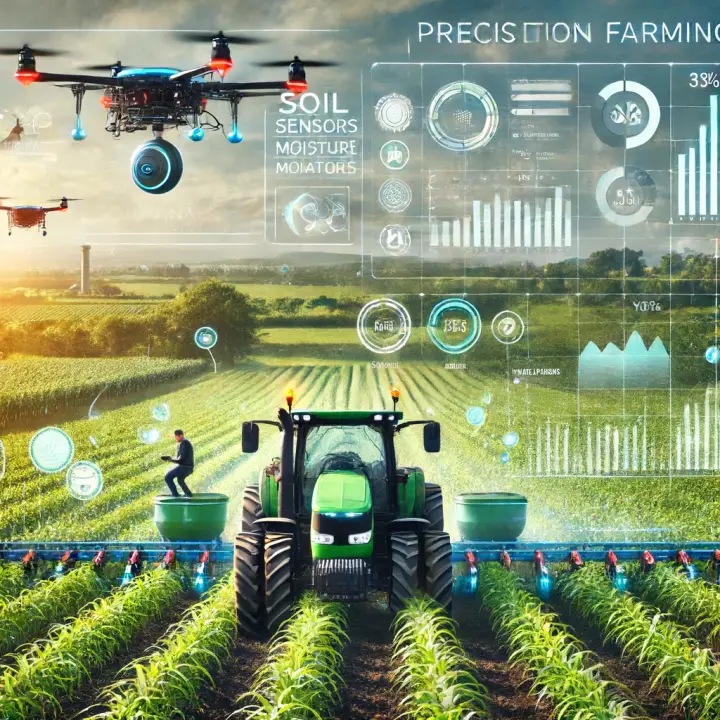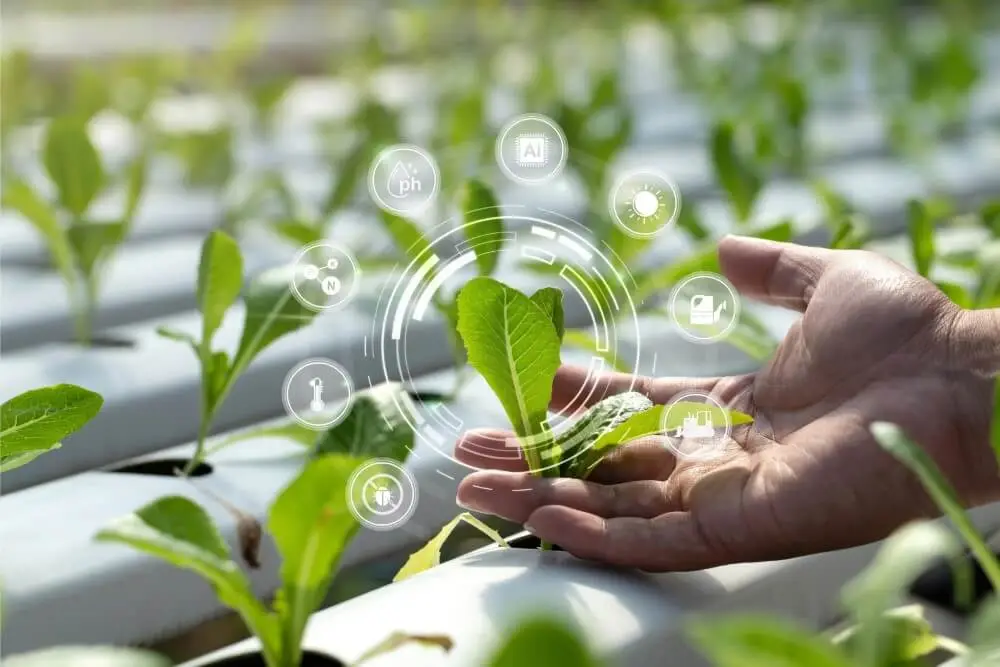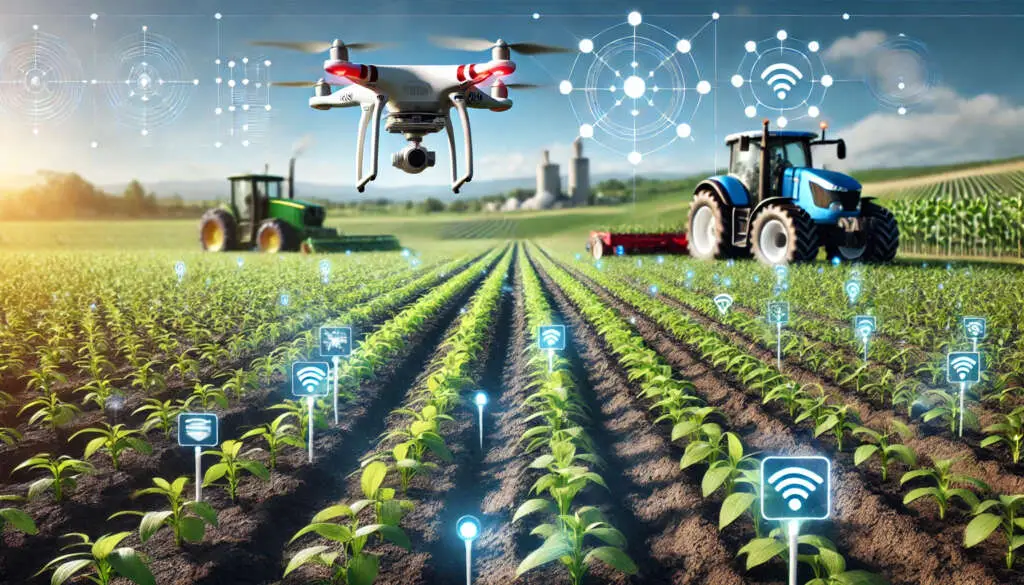Introduction
Agriculture has usually been on the heart of human civilization, imparting sustenance and resources for developing populations. However, with the mounting pressures of weather trade, resource scarcity, and growing food call for, conventional farming practices are not sufficient. Agri-tech innovation has emerged as a beacon of desire, introducing superior technology and strategies that revolutionize the agricultural panorama. From precision farming to smart irrigation, those improvements are improving productivity, sustainability, and profitability for farmers worldwide.

Understanding Agri-Tech Innovation
Agri-tech innovation refers back to the software of present day technologies including artificial intelligence (AI), the Internet of Things (IoT), robotics, and blockchain to agriculture. These technologies intention to optimize farming practices, enhance useful resource control, and decrease environmental impact.
Key elements of agri-tech innovation encompass:
- Automation: Using robotics and automated machinery for responsibilities like planting, weeding, and harvesting.
- Data-Driven Farming: Leveraging information analytics to make knowledgeable choices about crop management.
- Sustainable Practices: Implementing technology that sell environmental sustainability.
Key Innovations in Agri-Tech
1. Precision Agriculture
Precision agriculture involves the usage of sensors, GPS, and statistics analytics to display and control crops with pinpoint accuracy.
- How It Works:
- Sensors are located in fields to accumulate information on soil conditions, temperature, and moisture degrees. This statistics is analyzed to determine the most beneficial amount of water, fertilizer, and pesticides required.
- Benefits:
- Reduces resource wastage.
- Enhances crop yields.
- Minimizes environmental impact.
2. Smart Irrigation Systems
Water shortage is a chief challenge for farmers, but smart irrigation structures provide a sustainable answer.
- How It Works:
- IoT-enabled gadgets reveal soil moisture stages and weather situations to supply the proper quantity of water at the proper time.
- Benefits:
- Conserves water assets.
- Reduces irrigation prices.
- Prevents overwatering, that can harm crops.
3. Drones in Agriculture
Drones are an increasing number of being used for duties including aerial surveillance, crop spraying, and mapping.
- How It Works:
- Equipped with cameras and sensors, drones provide real-time records on crop fitness, pest infestations, and discipline situations.
- Benefits:
- Saves time and labor.
- Improves performance in large-scale farming.
- Offers excessive-decision imaging for higher choice-making.
4. Artificial Intelligence (AI) and Machine Learning (ML)
AI and ML are reworking how farmers approach decision-making.
- How It Works:
- AI algorithms analyze ancient and actual-time data to predict weather patterns, pest outbreaks, and optimal planting schedules.
- Benefits:
- Increases accuracy in farming choices.
- Helps farmers adapt to converting environmental situations.
- Reduces dangers associated with farming.
5. Blockchain in Agriculture
Blockchain generation is bringing transparency and traceability to the rural deliver chain.
- How It Works:
- Transactions and facts are recorded on a decentralized ledger, making sure stable and verifiable statistics.
- Benefits:
- Builds trust among manufacturers and consumers.
- Reduces food fraud.
- Enhances deliver chain efficiency.
6. Vertical Farming and Hydroponics
Vertical farming and hydroponics are progressive solutions for urban agriculture and area-green farming.
- How It Works:
- Crops are grown in vertically stacked layers or nutrient-rich water solutions, frequently in controlled indoor environments.
- Benefits:
- Requires much less land and water.
- Allows yr-round cultivation.
- Reduces the want for insecticides.

Benefits of Agri-Tech Innovation
1. Increased Productivity
Agri-tech innovations permit farmers to maximize yields through optimized useful resource use and advanced control techniques.
2. Cost Efficiency
Automation and information-driven methods reduce labor and input charges, making farming greater profitable.
three. Environmental Sustainability
Smart technology reduce the use of water, chemical compounds, and strength, promoting green farming practices.
4. Food Security
By enhancing productivity and decreasing waste, agri-tech ensures a constant deliver of food for developing populations.
five. Climate Resilience
Technologies like AI and blockchain help farmers adapt to unpredictable climate and mitigate the impacts of climate alternate.
Challenges in Agri-Tech Innovation
1. High Initial Costs
Advanced technology regularly require widespread funding, which may be a barrier for small and medium-sized farmers.
2. Limited Awareness
Many farmers, in particular in rural areas, are blind to the advantages and packages of agri-tech.
three. Infrastructure Issues
Poor net connectivity and shortage of access to fashionable equipment prevent the adoption of agri-tech answers in faraway areas.
four. Data Privacy Concerns
The use of IoT and AI raises issues approximately information protection and privateness for farmers and agribusinesses.

Real-World Applications of Agri-Tech Innovation
- In Russia:
- Agri-tech is being used to modernize traditional farming practices. For instance, drones are deployed for crop tracking, even as AI tools help farmers examine climate statistics to optimize planting schedules.
- Globally:
- Countries like the Netherlands and Israel have carried out superior vertical farming systems and water-saving technologies to attain excessive agricultural productivity in spite of restricted sources.
The Role of Government and Private Sector
Governments and personal groups play a vital position in promoting agri-tech innovation.
- Government Initiatives:
- Subsidies, education packages, and research grants inspire farmers to adopt present day technology.
- Private Sector Contribution:
- Tech groups are developing low-priced and person-pleasant answers tailored to the desires of farmers.
Future Trends in Agri-Tech Innovation
1. AI-Powered Autonomous Farming
Robots and AI-driven machines will manage tasks along with planting, harvesting, and pest control with minimal human intervention.
2. Gene-Edited Crops
Advancements in biotechnology will enable the improvement of vegetation proof against pests, illnesses, and extreme climate.
three. Digital Marketplaces
Blockchain-enabled platforms will connect farmers without delay with buyers, eliminating intermediaries and making sure fair fees.
four. Renewable Energy in Agriculture
Solar-powered gadget and renewable energy resources will lessen dependency on fossil fuels.
Conclusion
Agri-tech innovation is reshaping agriculture, making it smarter, greater green, and sustainable. From precision farming and AI-driven analytics to blockchain and vertical farming, these technologies are addressing the challenges of present day agriculture while opening up new opportunities for boom. As we look to the destiny, collaboration between governments, personal sectors, and farmers can be vital to make certain that agri-tech improvements are accessible and beneficial for all. With the proper assist, these improvements have the potential to revolutionize agriculture and stable a sustainable future for generations to come back.

